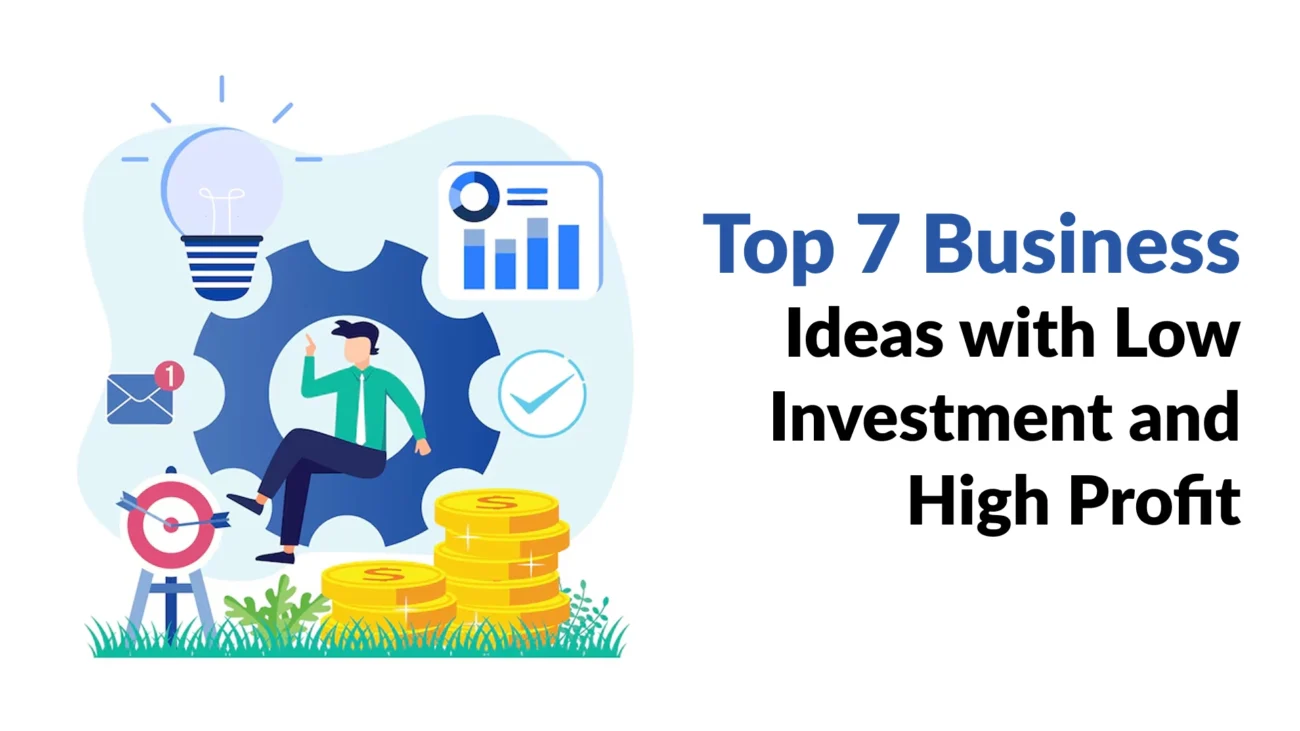Starting a business doesn’t always require huge capital. With the right planning and mindset, anyone can turn a small idea into a profitable venture. In today’s competitive market, many successful entrepreneurs begin with low-investment business ideas that grow over time.
If you’re ready to take control of your future, this guide outlines seven business ideas that are both affordable and highly profitable. Whether you’re a student, stay-at-home parent, or a working professional looking for a side hustle, these ideas are practical, scalable, and suited for today’s business trends.
1. Freelance Digital Services
In the digital age, offering freelance services is one of the most lucrative business ideas with minimal startup costs. Platforms like Upwork, Fiverr, and Freelancer allow you to offer skills like:
- Content writing
- Graphic design
- Digital marketing
- Web development
Investment Required: A computer, internet connection, and skill-specific tools (e.g., Adobe, WordPress)
Profit Potential: High, especially if you niche down or build long-term client relationships. Once established, many freelancers charge premium rates.
Why It Works: There’s a consistent demand for digital services in today’s tech-driven economy. It’s a scalable business; you can start solo and eventually build an agency.
2. Dropshipping Business
Dropshipping is a retail model where you don’t keep inventory. Instead, when you sell a product, it’s shipped directly from a third party to the customer.
Investment Required: Basic Shopify or WooCommerce store, product research tools, and marketing budget for ads.
Profit Potential: Moderate to high. Margins vary based on product pricing and marketing efficiency.
Why It Works: It eliminates the need for storage and bulk purchasing. This makes it one of the most practical business ideas for beginners who want to get into eCommerce.
3. Home-Based Food Business
Are you passionate about cooking? A home-based food business is a great way to turn that passion into profit. Whether it’s meal prep, snacks, or specialty baked goods, people are always looking for convenient, delicious food.
Investment Required: Cooking equipment, raw materials, licenses, and packaging.
Profit Potential: High—especially for niche products like vegan snacks, gluten-free meals, or regional delicacies.
Why It Works: Low overhead, easy to start, and demand is consistent. You can scale by offering subscription boxes or collaborating with local cafes.
4. Online Coaching or Tutoring
Knowledge is a powerful commodity. If you have expertise in any area—academics, fitness, languages, or even career coaching—you can monetize it through one-on-one coaching or online courses.
Investment Required: Zoom/Google Meet, a laptop, basic marketing tools.
Profit Potential: Very high. Online coaches can charge hourly or offer scalable digital courses.
Why It Works: People are actively seeking ways to upskill. Offering personalized coaching builds trust, making this one of the best long-term business ideas.
5. Handmade Products Business
From candles to soaps to customized gifts, handmade products have a loyal customer base. Websites like Etsy, Amazon Handmade, and Instagram are perfect platforms for launching a small craft business.
Investment Required: Craft materials, basic packaging, and listing fees.
Profit Potential: Moderate to high, depending on uniqueness and branding.
Why It Works: Consumers value authenticity and originality. This trend fuels the growth of handmade and sustainable products.
Tip for Business: Focus on storytelling and branding to stand out in the handmade goods niche.
6. Affiliate Marketing
Affiliate marketing allows you to earn commissions by promoting other people’s products or services. This is a great business idea for bloggers, YouTubers, and influencers.
Investment Required: A blog or social media presence, email marketing tools, and content creation resources.
Profit Potential: Passive income potential is high if content ranks well and drives consistent traffic.
Why It Works: You don’t need to create your own product. By choosing the right niche and marketing strategy, you can build a reliable income stream over time.
7. Pet Services Business
With pet ownership on the rise, services like pet grooming, walking, training, and sitting are in high demand.
Investment Required: Training (optional), grooming tools, insurance, and basic marketing.
Profit Potential: High in urban areas with high pet ownership.
Why It Works: Pet owners are willing to pay a premium for quality care. This makes it a stable and heartwarming business idea.
Key Benefits of Choosing Low-Investment Business Ideas
1. Minimal Financial Risk
You don’t need a loan or huge savings to get started. This allows for greater flexibility and less stress as you grow.
2. Flexibility and Freedom
Most business ideas listed here can be started from home or remotely, giving you more control over your schedule.
3. Opportunity to Learn and Pivot
Small-scale businesses let you test the waters before scaling. You can learn market dynamics and pivot your approach as needed.
4. High Return on Investment (ROI)
Since upfront costs are low, your break-even point comes sooner, increasing the chance of profitability.
How to Choose the Right Business Idea for You
While all these business ideas have potential, the best one depends on your skills, interests, and market demand. Here are some tips to help you choose:
- Evaluate Your Strengths: Choose something aligned with your skillset.
- Market Research: Identify gaps or underserved niches.
- Start Small: Test with a minimum viable product (MVP).
- Gather Feedback: Listen to early users and improve quickly.
- Study Business Trends: Stay updated with what’s working in the current economic climate.
Conclusion
Great business ideas don’t need a massive investment; what they need is commitment, creativity, and a growth mindset. The business world is full of stories where small side hustles became million-dollar ventures.
Start where you are. Use what you have. Build as you go. Whether you choose to freelance, start a food brand, or sell handmade gifts, remember: every big business started with just one idea.


